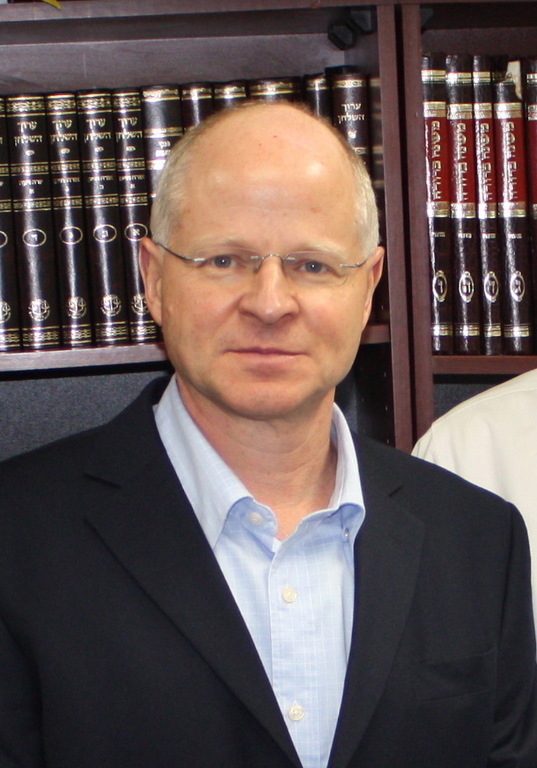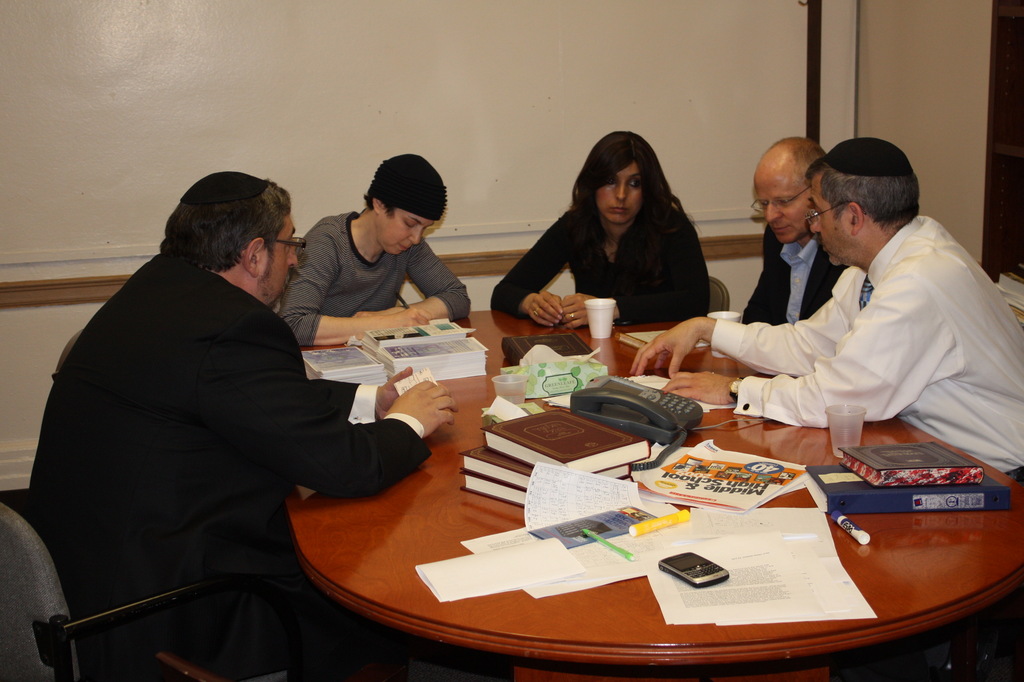Noam Shalit shares message of hope
By Malka Eisenberg
Issue of May 8, 2009 / 14 Iyar 5769
Noam Shalit, father of captive Israeli soldier Gilad Shalit, spoke at a number of yeshiva high schools in the Five Towns and Brooklyn on
Wednesday, Yom Ha’atzmaut. Shalit made time for the visits during a trip to the U.S. to meet with political leaders, government officials and members of Jewish communities to raise awareness and garner support for his son.
At HAFTR Shalit addressed a full auditorium of students in front of a poster that read, “Gilad is Still Alive, 1038 Days Away from Home.”
“My wife and I miss him more than we can express,” he said in measured tones. “We are concerned with his physical and mental health. In captivity there is no tomorrow; time is of the essence. We have to keep praying and raising his plight all around the U.S.”
He thanked everyone for their support and solidarity and quoted from Yirmiyahu (Jeremiah) in Hebrew ending with “... ‘and the sons will return to their borders,’ thank you and happy holiday.”
Gilad Shalit has been in captivity for close to three years now. Hamas grabbed him from Israeli soil on June 26, 2006 while he was on a mission with his tank unit on Israel’s southern border. Aside from an audio recording and two letters, the Shalits have received no solid proof that Gilad is alive, but they are hopeful.
The elder Shalit is here also to stress that his son’s captors are flouting
international law, first by holding Gilad hostage and making demands, second by not allowing the Red Cross to visit and report on his condition.
Rabbi Zev Friedman, Rosh Yeshiva of Machon HaTorah, emphasized that the commandment of pidyon shevuyim (freeing captives) is a “priority over every mitzvah,” and the student body needs an “action plan, not just talking and feeling bad.”
“There has to be a sense of urgency,” noted principal Rabbi Yotav Eliach.
“We’re trying to keep hope,” said Joy Elias, a 12th grader. “It’s really sad; it’s three years already. We wear his dog tags and keep saying tehillim.”
“It’s amazing to see that he is still hopeful,” noted Jamie Rohr, another 12th grader. “He is so reassuring about it.”
Kyra Mae Garber, a sophomore, read a story, “When the Shark and the Fish First Met,” at the assembly before Noam Shalit spoke. It is an allegory about the Arab-Israeli conflict written by Gilad in fifth grade.
“When I read it I thought it was unreal, how it relates to (his situation) that he’s a captive,” Garber said. “If we can’t make peace then we have to step up. It’s amazing that Gilad’s father came. You can really feel that he wants us to do something.”
Shalit had met with the Bush administration without success and hopes the Obama administration, with its dialogue with Damascus, might help.
“He is trying new channels,” Shalit said of President Obama. “He wants to be more involved.”
After the assembly he met with Rabbi Friedman and Richard Altabe, principal of Magen David Yeshiva High School, to plan strategy. Shalit would like to establish an action committee in the U.S. and mobilize and unite Jewish communities “to bring up and make this an issue” and to “solve it rapidly,” and get all governments involved to solve this “before any other issue. It is a bottleneck in the Middle East,” he emphasized, “otherwise nothing will go forward.”
Altabe explained that a teacher in his school with a connection to Shalit had requested his help. Altabe, in turn, enlisted Rabbi Friedman to spur schools and community members to mobilize political connections and financial resources on behalf of Gilad Shalit.
At DRS students gave Shalit a Sefer Tehillim (Book of Psalms) that “represented their daily effort to pray for Gilad,” Altabe noted.
“A Jew in tza’ar (suffering) affects every person,” said Rabbi Yisroel Kaminetsky, Menahel of DRS. “We wanted him to come for us, it helped put a face on the pain of the family,” to enable the students to pray for Gilad with greater fervor. He noted that Noam Shalit was truly moved and strengthened to know that “310 kids he never met and never knew were saying Tehillim for the past 36 months every morning,” noting that “we don’t have connections to politicians but we have connections to the One who decides, the Ribbono Shel Olam.”
Anyone interested in helping can e-mail Richard Altabe at raltabe [at] mdyhs.net, or Rabbi Zev Meir Friedman at roshmesivta [at] rambam.org.

 56.0°,
A Few Clouds
56.0°,
A Few Clouds 







